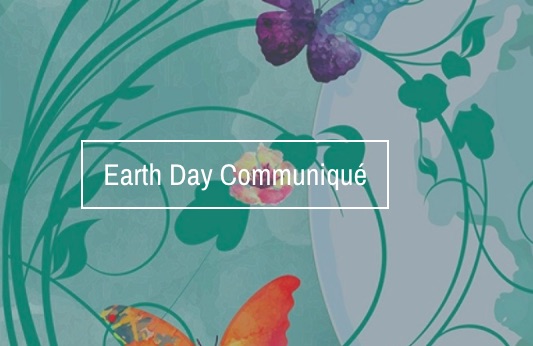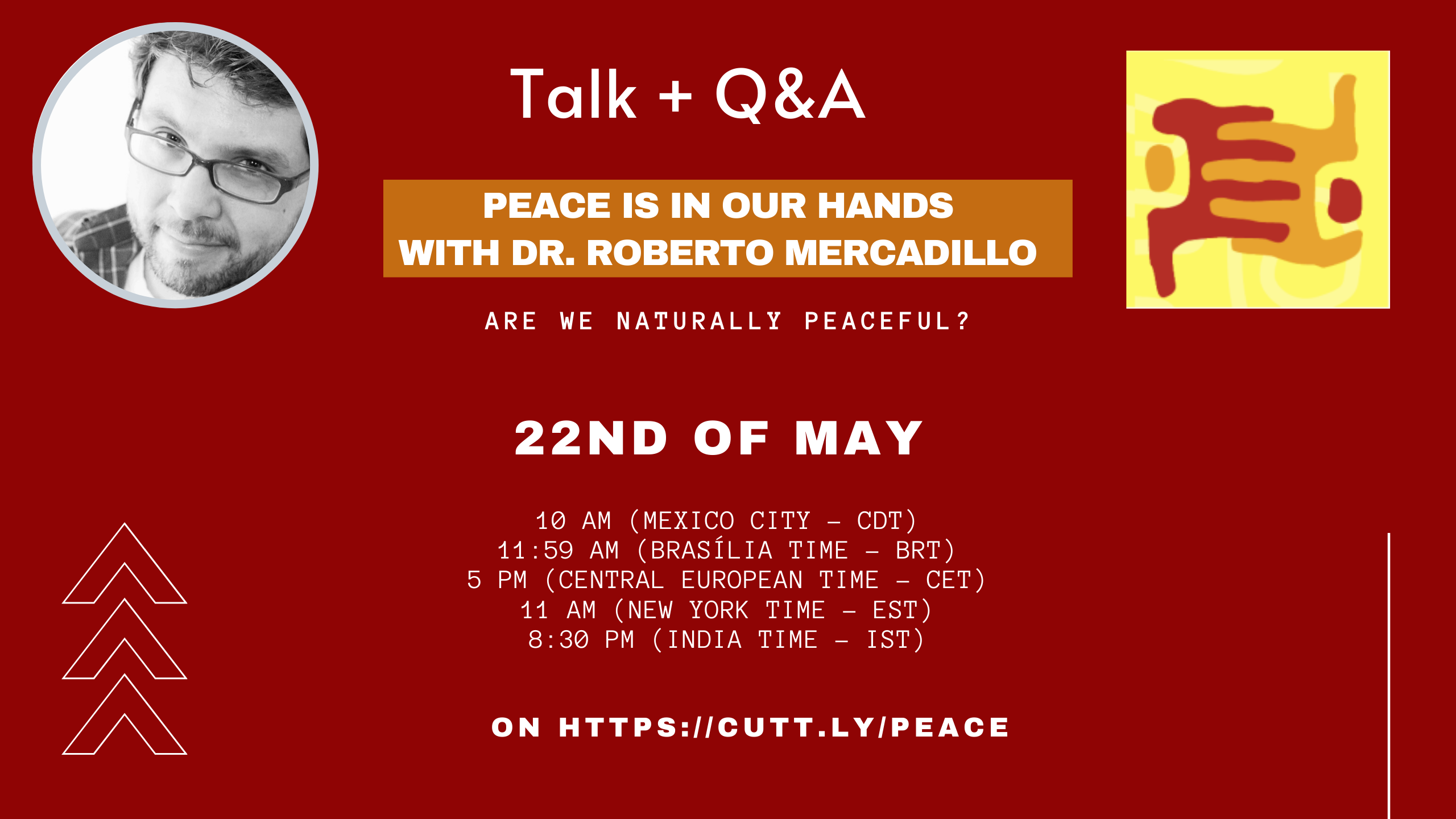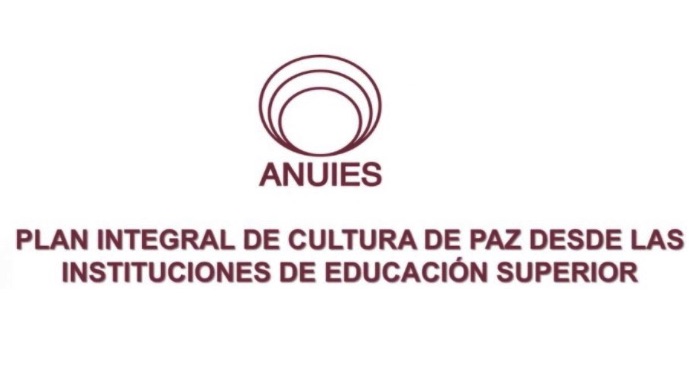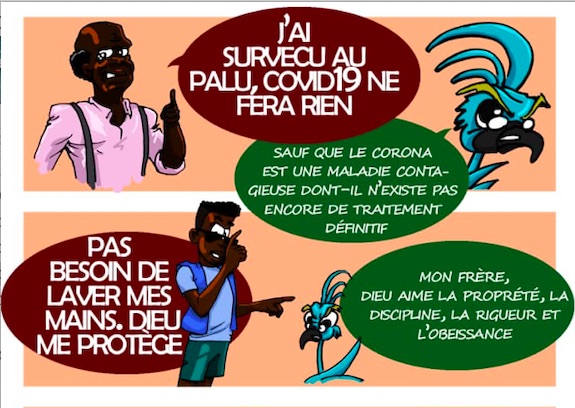As we have seen in this bulletin in recent months, the global health and economic crisis has inspired many to envisage and prepare for radical change believing that “another world is possible.”
This month we feature two aspects of this movement: 1) towards local food production and consumption, known as food sovereignty; and 2) global rlinkage of activists via webinars and online courses and conferences. Hence a new variation on the old slogan that we should “Think global, act local.”
Food sovereignty
As pointed out by The People’s Coalition on Food Sovereignty , the disconnect between food supply and demand has never been this huge. While almost a billion people around the world sleep hungry at night, tons of food are wasted across fields caused by transportation and market bottlenecks. Every year, a third of the world’s food – amounting to as much as USD 1.2 trillion – is lost or goes to waste. With today’s pandemic, lockdowns and supply chain failures have put this problem into overdrive. To meet this crisis, The People’s Coalition on Food Sovereignty, has issued 9 demands, including priority to local food production and local markets. One of their demands is to lift sanctions and cease all military aggressions which are exacerbated the crisis of hunger.
Another coaltion, the Planetary Coalition, also based in Asia and including partners around the world, calls for “a new earth Democracy” with a wide range of actions including “local biodiverse food systems.” They remind us that “Contrary to what we are made to believe, it is not globalisation that protects people from famines, which it produces and aggravates, but peoples food sovereignty, where people at the community level have the right to produce, choose and consume adequate, healthy and nutritious food, under fair price agreements for local production and exchange.”
A leader in the food sovereignty movement has long been the international peasant’s movement La Via Campesina, a global coalition of 182 organisations in 81 countries. Now they remind us that “As the world reels under the fallout of a pandemic, now is the time to start building an equal, just and liberal society that embraces food sovereignty and solidarity.”
The North African Network for Food Sovereignty has put forward a series of demands and urgent measures in response to the health emergency including support to subsistence farming activities, subsistence stockbreeding, and coastal subsistence. As well as encouraging the consumption of their products through the creation of direct markets and fighting illegal and monopoly speculation.
The Alliance for Food Sovereignty in Africa is working to establish food sovereignty and agroecology as a key policy response to the climate crisis that is negatively impacting Africa. “Agroecology is a reverse response rejecting the industrial monoculture agriculture that contributes more than 90% of greenhouse gas emissions, degrades the environment, depletes biodiversity, erodes diverse cultures, and only feeds less than 30 percent of the world population.”
In the United States there is a rebirth of the Food Sovereignty Movement. This is illustrated by the increased use of urban farms and gardens in the city of Detroit and the program Seeds and Sheep by the Navajo Nation in Utah.
Examples from France, Thailand and Singapore are cited in the article “Grow your own: Urban farming flourishes in coronavirus lockdowns.”
Webinars, online courses and conferences
Increasingly, conferences are taking the form of Webinars so that people can take part from around the world.
The world conference “No Nukes, Climate Justice, Peace” originally scheduled for New York City in April was held instead online with up to 500 people joined by Internet and with simultaneous live streaming so anyone could join by listening in simultaneously or later on a YouTube publication. The conference was sponsored by hundreds of leading nuclear disarmament, peace, climate and justice organizations. Speakers came from the United States, Japan, Germany, Costa Rica, Iran and Australia.
The Webinar “Youth Actions for Climate, Nuclear Disarmament and Sustainable Development” was held on May 14 and 19 sponsored by Abolition 2000 Youth Network, World Future Council, Parliamentarians for Nuclear Non-Proliferation and Disarmament and the Basel Peace Office. Speakers came from Switzerland, United States, Canada, Kenya, Morocco, Czech Republic, Philippines, Bangladesh, South Korea and Japan.
The Webinar “How Young People Can Lead Climate Change Action, sponsored by the International Youth Foundation took place in November 2019 and was made available as a video this month on a website called Youthlead.
Nonviolence International has a weekly Webinar series. “Young Women Fighting for Our Planet” took place on April 22 and the video is available online via Facebook. Speakers are from Kenya, United Arab emirates, Canada and South Korea.
Campaign Nonviolence is holding a Weekly Nonviolence Community Course online for six weeks from May 28 through July 2. There are places for 50 participants. Advanced registration is required.
Movimento por la Paz (Spain) is holding an online course “Five paths for peace” beginning on May 18, with places for 20 participants filled in order of registration.
Finally, here at the Culture of Peace News Network, Mirian Castello, based in Brazil, is hosting a weekly Webinar interviewing activists for a culture of peace. Registration is open for people around the world to access the webinar live and submit their questions to the person interviewed. The first three interviews are now available as online videos.
Now we see that the technology is available and is being used for the “global movement for a culture of peace . . . promoted through sharing of information” that was envisaged in 1999 by the United Nations Declaration and Programme of Action.
|
SUSTAINABLE DEVELOPMENT |
FREE FLOW OF INFORMATION |
HUMAN RIGHTS |
DEMOCRATIC PARTICIPATION |
|
EDUCATION FOR PEACE |
WOMEN’S EQUALITY |
TOLERANCE & SOLIDARITY |
DISARMAMENT & SECURITY |







